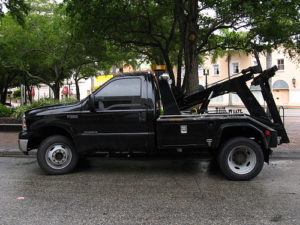Migliaccio & Rathod LLP is investigating potential claims of predatory auto loans and illegal repossession of vehicles. Auto lending is booming in the United States, but Americans are increasingly unable to make payments on their vehicle loans, with 6.3 million Americans who are 90 days late on their payments. The high number of delinquencies suggests that many loans are made on predatory terms. Such terms are potentially illegal. Under D.C.’s usury law, for example, interest on car title loans may not exceed 24% APR.
Unable to make payments, many consumers are also the victims of repossessions that fail to comply with strict requirements of the law. In D.C., lenders must provide clear notice concerning the repossession at various stages:
- At least ten (10) days before any motor vehicle is repossessed, the lender must deliver to the buyer personally, or send to the buyer’s last known address by registered or certified mail, a written notice of the lender’s intention to repossess the vehicle.
- Within five (5) days after a vehicle has been repossessed, another written notice must be sent by registered or certified mail.
- For fifteen (15) days after the post-repossession notice was sent out, the vehicle must be stored in the District or the state and county in which the consumer resides or the state and county where it was located and repossessed. During this period the consumer may “redeem” the vehicle and become entitled to take possession of it.
Failure to meet any of the above requirements constitutes a violation of the Washington D.C. Consumer Protection and Procedures Act that, once proven, entitles the consumer to a minimum of $1,500 or triple his or her actual damages for each unlawful act, whichever is greater.
In addition, in DC repossessions are only legal if they are performed by or on behalf of D.C.-licensed lenders subject to D.C. lending regulations. In other words, repossession in D.C. by a Virginia-based lender that is not licensed in D.C. is unlawful because that Virginia lender is not subject to D.C.’s lending regulations. If an outside lender is licensed in D.C. but repossesses a vehicle whose interest rate exceeds the District’s legal limit, such conduct is also unlawful. In a related case, TitleMax of Virginia, Inc. settled with the district over this issue, since it was repossessing vehicles in the District to enforce car title loans that violated D.C.’s usury law.
Were You Subject to Auto Loan Interest Rates Higher than 24% APR from a DC Auto Loan Lender, or Has Your Vehicle Been Illegally Repossessed?
If so, we would like to speak with you. Complete the contact form on this page or give us a call at (202) 470-3520.
Attorneys Committed to Consumer Protection
The lawyers at Migliaccio & Rathod LLP have years of experience in class action litigation against large corporations, including in cases involving illegal repossession. More information about our current cases and investigations is available on our blog.

